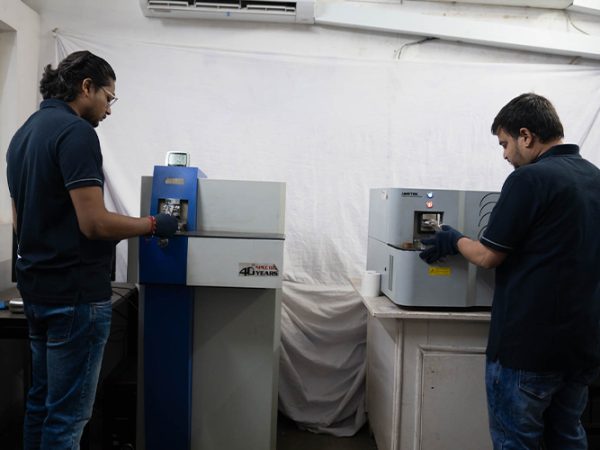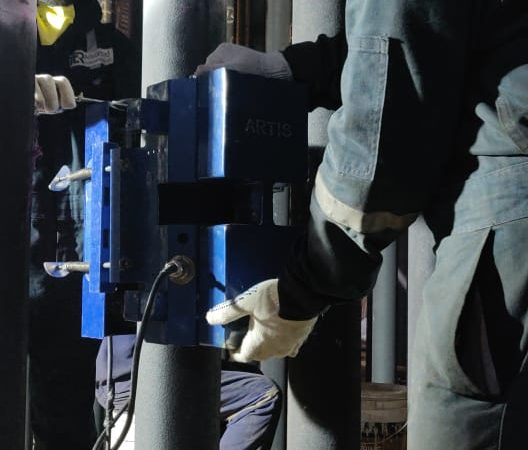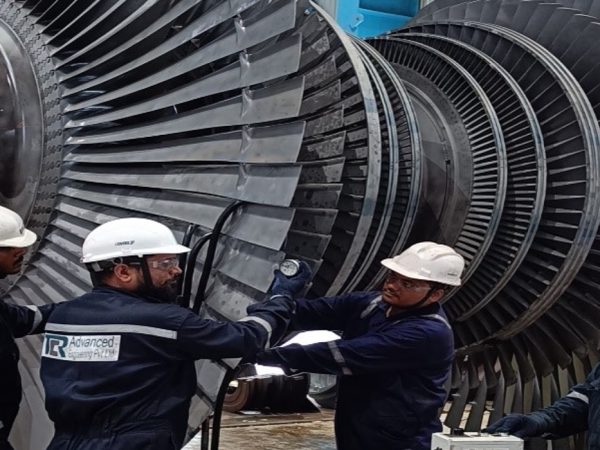In today’s technology-driven industries, equipment performance and reliability are non-negotiable. Even the smallest component failure can lead to unplanned downtime, loss of revenue, and potential safety risks. That is why Failure and Root Cause Analysis– is one of the most vital services for industries that depend on operational efficiency and safety.
At TCR Advanced Engineering Pvt. Ltd., we pride ourselves on having conducted over 1,800 failure investigation assignments. These success stories include major projects in manufacturing and metallurgical failures on ASME boilers, pressure vessels, gas turbine engine components, oil and gas transmission pipelines, food processing equipment, heat exchangers, medical supplies, refineries, petrochemical plants, aircraft/aerospace, offshore structures, industrial machinery, weldments and ships.
This blog takes you inside our systematic approach to Failure and Root Cause Analysis, our methodologies, sectoral expertise, and why businesses around the world trust TCR to identify causes, prevent recurrences, and optimize performance.
What is Failure and Root Cause Analysis?
Failure and Root Cause Analysis- is the structured process of identifying the fundamental reason behind equipment or material failure. Instead of simply fixing the visible issue, the analysis digs deeper to uncover underlying design, material, or process flaws.
The purpose of this analysis is not just to repair the immediate damage, but to provide insights that prevent the recurrence of similar issues in the future. At TCR, we see every failure not as an endpoint but as an opportunity to strengthen reliability, improve designs, and ensure safer operations.
Why Industries Need Failure and Root Cause Analysis
Failures can occur for a variety of reasons—high temperature and pressure, metallurgical weaknesses, welding defects, corrosion, or even design flaws. Without proper failure analysis, industries risk repeating the same mistakes, leading to costly shutdowns and even catastrophic accidents.
By conducting a thorough Root Cause Analysis, TCR Advanced helps industries:
- Improve product and system reliability
- Enhance safety across operations
- Reduce unplanned downtime and associated costs
- Comply with international safety and performance standards
- Gain valuable insights for continuous improvement
From oil and gas pipelines to medical devices, our services help industries turn failures into learning opportunities that build stronger, more resilient systems.

TCR’s Expertise in Failure Investigation
With deep sectoral knowledge built over decades, TCR Advanced has successfully completed Failure and Root Cause Analysis- assignments across:
- ASME Boilers and Pressure Vessels
- Gas turbine engine components
- Oil and gas transmission pipelines
- Food processing equipment
- Heat exchangers
- Medical supplies
- Refineries and petrochemical plants
- Aircraft and aerospace components
- Offshore structures
- Industrial machinery
- Weldments and ships
One of our strongest areas of expertise lies in Boiler Tube Failure Investigation. Boiler tubes, operating under extreme conditions of heat, pressure, and corrosive environments, are prone to frequent failures. Identifying the exact cause is critical to ensure plant safety and uninterrupted power generation.
TCR’s Core Service Offerings in Failure and Root Cause Analysis
At TCR, we offer a comprehensive range of failure testing services- and methodologies. Our strength lies in evaluating high-temperature and high-pressure failures with a multi-disciplinary approach that includes metallurgy, welding, mechanical, civil, chemical, and electrical engineering expertise.
Our failure analysis- process includes:
1. Collection of Background Data & Sample Selection
Understanding the service conditions, operating history, and failure background before detailed testing.
2. Preliminary Examination
Initial inspection of the failed part to identify obvious defects or signs of distress.
3. Metallurgical Analysis
Complete microscopic and macroscopic evaluation, including scanning electron microscopy (SEM), to detect microstructural weaknesses.
4. Mechanical and Chemical Testing
Stress analysis, hardness testing, corrosion evaluation, and chemical composition checks.
5. Environmental Simulation
Simulated service testing to replicate real-life stress and environmental conditions that may have triggered the failure.
6. Fracture Mechanics Analysis
Understanding crack initiation and propagation under applied stresses.
7. Evaluation of Alternatives
Testing alternative materials or designs to recommend performance improvements.
8. On-Site Evaluation & Consulting
Direct plant visits for detailed inspections and consultation with client teams.
This exhaustive sequence ensures that every angle is covered before compiling a Failure Investigation Report.
Boiler Tube Failure Investigation: A Key Area of Focus
Among all industrial failures, Boiler Tube Failure Investigation- are one of the most critical and frequent. Boiler tubes face high temperatures, cyclic stresses, and corrosive environments, making them vulnerable to creep, fatigue, oxidation, and corrosion.
Our specialized approach in this area includes:
- Metallurgical evaluation- of tube microstructure
- Mechanical testing- for stress, hardness, and toughness
- Chemical analysis- of deposits, scale, or corrosion products
- Failure testing services- like simulated stress and environmental exposure
- Root Cause Analysis- to determine whether failures arise from material defects, operational overload, or design flaws
By performing Boiler Tube Failure Investigation- thoroughly, we help plants avoid costly downtime, improve operational safety, and extend the service life of critical equipment.
The Role of the Failure Investigation Report
The Failure Investigation Report– is the cornerstone of our work. It represents not only the findings but also a roadmap to preventing similar failures in the future. A typical report includes:
- Description of the failed component
- Service conditions at the time of failure
- Prior service history
- Manufacturing and processing background
- Mechanical and metallurgical study of the failure
- Event summary of the failure-causing mechanism
- Recommendations for prevention of recurrence
Our Failure Investigation Reports- are structured to provide actionable insights that clients can implement immediately to reduce risks and improve asset performance.
Case Examples of Failure and Root Cause Analysis
Over the years, TCR has worked on hundreds of critical projects. Some of the notable assignments include:
- Boiler Tube Failure Investigation- in power plants to identify creep and oxidation damage.
- Shaft failure investigation- in rotating equipment due to fatigue loading.
- Heat exchanger failure analysis- caused by localized corrosion and thermal stress.
- Gas turbine failure investigations- involving metallurgical fatigue at elevated temperatures.
- Petrochemical plant component failures- under corrosive operating environments.
Each case reinforced the importance of structured Failure and Root Cause Analysis- in preventing future incidents and improving industry reliability standards.
Advanced Tools for Failure Testing Services
TCR’s ability to conduct world-class failure analysis– lies in its investment in advanced laboratory tools and technologies, including:
- Metallurgical Optical Microscope with Image Analysis- – for studying fracture surfaces at various magnifications
- Scanning Electron Microscope with EDAX- – for high-resolution fractography and surface analysis
- Stress Analyzer- – to measure stress levels in metals
- Dilatometer- – to study volume changes during heating and cooling cycles
- Mechanical and Chemical Testing Equipment- – for stress, hardness, tensile, and corrosion testing
- Sample Preparation Equipment- – including polishing, etching, and micro-hardness testing setups
These tools enable accurate, data-driven insights that make our failure testing services- some of the most reliable in the industry.
The Value of Partnering with TCR
Partnering with TCR Advanced for Failure and Root Cause Analysis- means gaining access to decades of experience, state-of-the-art facilities, and multi-disciplinary expertise. Our clients rely on us for:
- Quick and accurate identification of failure mechanisms
- Detailed, actionable recommendations
- Compliance with global standards (ASME, ASTM, ISO)
- On-site support and consultation during critical investigations
- Prevention-focused insights that enhance long-term reliability
Whether it’s Boiler Tube Failure Investigation, turbine shaft evaluations, or petrochemical plant component failures, TCR Advanced ensures every project receives rigorous analysis backed by engineering excellence.
Frequently Asked Questions
Q1. Why should my company invest in Failure and Root Cause Analysis?
Failures often lead to unplanned downtime, production losses, and safety risks. By conducting Failure and Root Cause Analysis, your company can identify the real cause behind issues, prevent future breakdowns, and improve long-term reliability—saving both time and costs.
Q2. What industries can benefit from TCR’s failure analysis services?
We serve a wide range of industries, including power plants, oil & gas, aerospace, petrochemicals, refineries, food processing, offshore structures, and industrial machinery. Our expertise is especially strong in Boiler Tube Failure Investigation and metallurgical failure cases.
Q3. How detailed is the Failure Investigation Report?
Our Failure Investigation Report provides a complete analysis of the failed component, service conditions, metallurgical and mechanical evaluations, and a summary of the failure-causing mechanism. Most importantly, it includes clear recommendations to prevent similar failures in the future.
Q4. How long does a typical failure investigation take?
The timeline depends on the complexity of the case. A standard Failure and Root Cause Analysis can take from a few days to several weeks. Urgent cases like Boiler Tube Failure Investigation can often be prioritized to minimize plant downtime.
Q5. What testing methods are used during the investigation?
We use advanced failure testing services such as metallurgical microscopy, scanning electron microscopy (SEM-EDAX), stress analysis, fracture mechanics, mechanical and chemical testing, and environmental simulation. These ensure precise identification of the root cause.
Q6. Can TCR Advanced provide on-site evaluation?
Yes. Our experts frequently perform Failure Investigation on-site, particularly for critical components like boiler tubes, pipelines, or turbine shafts. This allows us to quickly gather real-time evidence and guide immediate corrective actions.
Q7. Will the findings help improve future designs and processes?
Absolutely. Beyond solving the immediate issue, our Root Cause Analysis recommendations often highlight ways to improve material selection, welding methods, operating parameters, or inspection schedules. This prevents recurrence and strengthens future reliability.
Q8. How do I get started with TCR’s failure analysis services?
You can reach out to our team with details of the failure incident. We’ll guide you through the process—collecting background data, planning the investigation, and delivering a detailed Failure Investigation Report with practical solutions.
Conclusion: Turning Failures into Opportunities
Failures, while often costly and disruptive, are also opportunities for improvement. With TCR’s proven expertise in Failure and Root Cause Analysis, industries can move beyond immediate fixes to long-term reliability and safety improvements.
Our meticulous approach, advanced testing tools, and comprehensive Failure Investigation Reports provide not just answers, but solutions that help organizations reduce risks, extend equipment life, and improve overall operational efficiency.
By trusting TCR’s failure testing services, companies can ensure that every setback becomes a stepping stone toward resilience, safety, and success.







